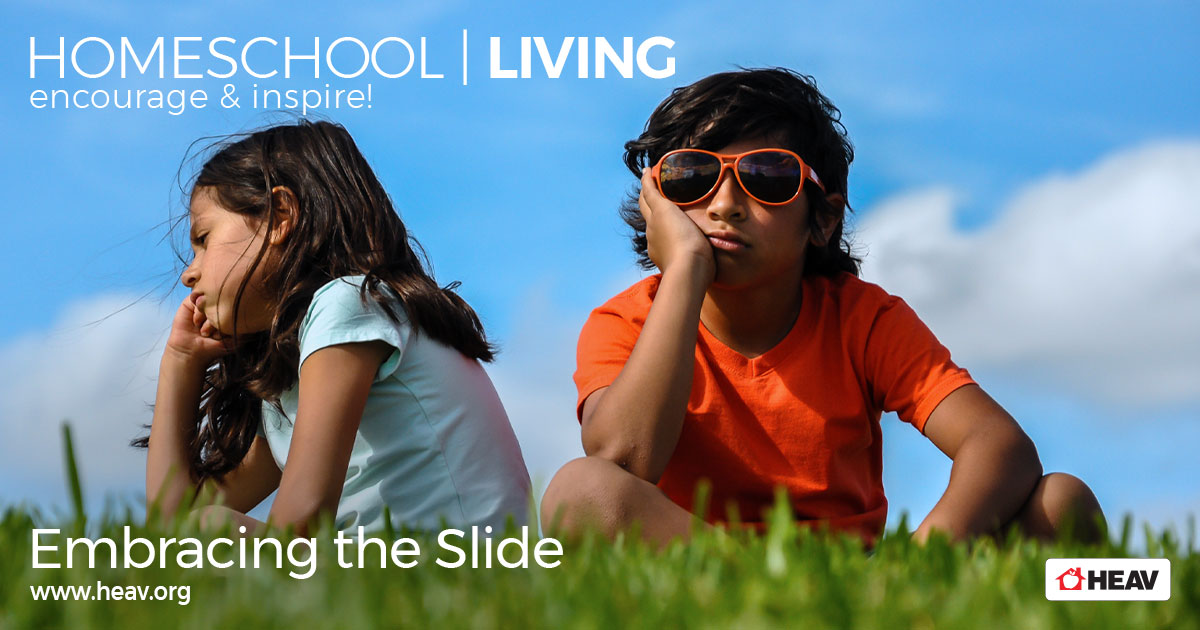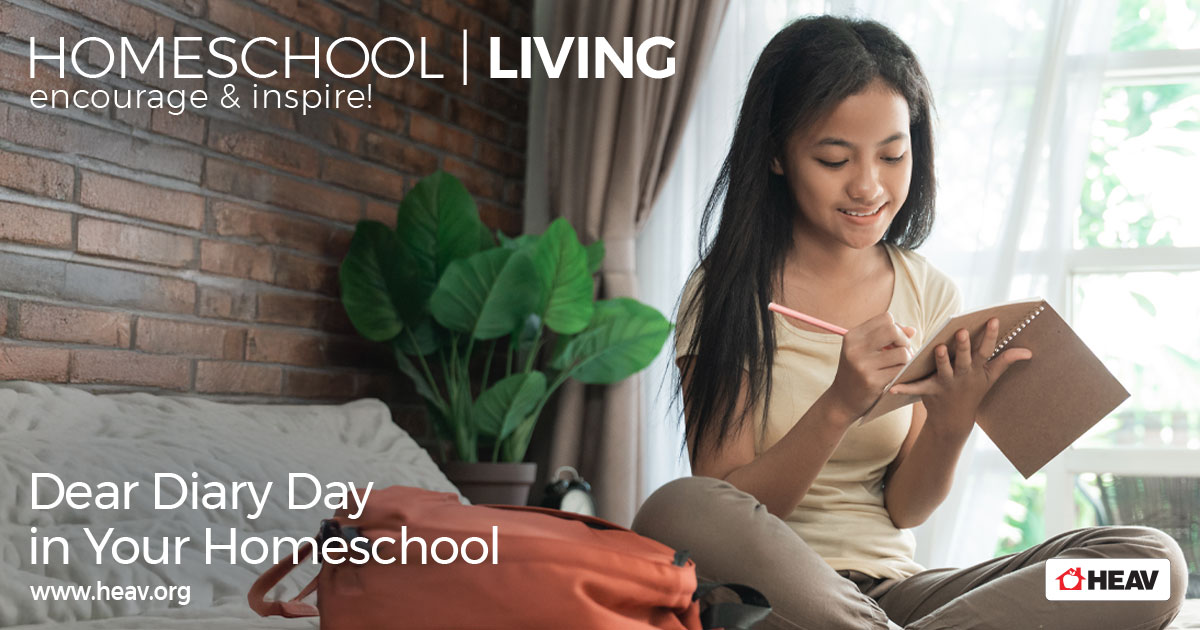Embracing the Summer Slide
The dreaded “summer slide”—the idea of your kids forgetting information and losing achievements they’ve gained over the year is scary. No one likes to have to retrace their steps along their learning journey, especially if it feels like a huge setback in the plans you have for the future. Do an internet search on “summer slide” right now and you’ll find thousands of results for preventing, combatting, and reducing summer slide. Truthfully, in a classroom setting where dozens of students need to be on the same page for lessons to progress, learning loss that affects children differently really can be a major setback.
The Freedom of the Summer Slide
In your homeschool, though, you can give your kids the freedom to slide! Embracing free time, getting bored, letting your mind wander, and—yes—relearning things that you used to know, are all vital parts of homeschooling and growing up in general. Check out this Homeschool Living for some tips on relaxing your routine over the summer, resources for allowing your kids’ natural curiosities and interests to direct their summer homeschool, and the benefits of letting your kids slide.
Summer Homeschool
But wait! You don’t want to throw out your schedule for a completely lesson-free summer. That’s okay! Homeschooling doesn’t stop over the summer, any more than life does, regardless of whether you take an extended break for the season or not. Sometimes—especially if you have kids in a range of ages—the schedule is the thing that keeps the wheels turning as you go through your day. This blog post from Homeschool Gardens has some great tips on creating a relaxed summer homeschool schedule that works for you and your family. Our Life Homeschooling shares some important life skills for kids to learn in the summer. Think about creating your own list of life skills you’d like to teach your child throughout the summer. It’s a great way to keep brains engaged, try new things, learn responsibility, and even have some family fun, without the structure of “regular” school days.
It’s tempting sometimes to throw yourself into an adventure-filled summer. You figure you’ll have time to make it to that field trip that you couldn’t quite carve out time for in the spring. You’ll take advantage of the warm weather to use up the outdoor science experiment and art supplies. You’ll plan a vacation, take day trips, go on hikes, visit family and friends, and all the other fun things that seem like they just fit into a summer vacation. But there’s a beauty—and a benefit—to letting your kids get bored sometimes. Boredom is the birthplace of a lot of creativity, problem-solving skills, planning strategies, and even a healthy response to failure. This article from Child Mind Institute explores the benefits of boredom, as well as some ways you can encourage your children to use their time proactively, teach them to cope with and even thrive from boredom, and allow them to figure things out for themselves sometimes.
Sometimes it’s easy to feel like your homeschool needs to follow a “traditional” school schedule and mirror the public and private schools around you, but one of the best things about homeschooling is that you can choose the schedule that works best for your family. It may work best for your family to homeschool year-round and you may even be able to avoid some of the complications that could come from taking extended breaks—like summer slide. Or, you and your family might revel in the freedom that comes with a “school-free” summer. This blog post from Teach Them Diligently explores several ways that your homeschool need not look like a traditional school setting.
Summer Ends
One of the best reasons I can give for embracing a summer slide and allowing your kids the freedom to do so is that that freedom won’t last forever. As your kids get older and hone in on extracurriculars they are passionate about, start working, learn to drive, and experience changes in their social lives, they’ll never have the same feeling of freedom they did as a kid when the summer was a seemingly endless stretch of possibilities. Don’t stress over a few forgotten lessons or the extra time you might need to review when you start structured lessons again. Have you ever reread a book and gleaned something new because you saw it from a different perspective, or built on an idea that had been mulling around in your subconscious for months? Your children will experience that too when they revisit and review lessons later. Homeschool living is all about the learning that happens in everyday life, all around you. You’ll love discovering the new ideas, plans, and goals your kids come up with when you use your summer homeschool to encourage creativity, inspire adventures, and embrace the slide!
Megan Mora Fuentes
Enjoy this article?
For more insightful and encouraging homeschool related articles, homeschool living tips, and homeschool connections, please visit our HEAV blog. Click here!









